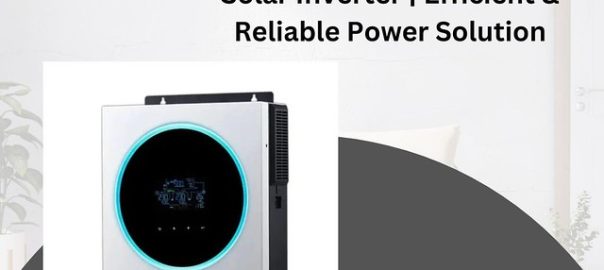Sol SOLAR HOME SYSTEM ar Inverters: Revolutionizing Clean Energy Conversion
Manufacturing Process:
The manufacturing process of a solar inverter involves several intricate steps to ensure seamless energy conversion. The first step is the procurement of high-quality components, including semiconductor and power electronic devices, which are vital for efficient operation. These components are then carefully assembled and connected using advanced circuitry techniques. The final product undergoes rigorous testing to ensure co Solar Inverter mpliance with industry safety standards.
Characteristics:
Clean energy inverters, such as photovoltaic (PV) inverters or solar power inverters, play a crucial role in converting DC electricity generated by solar panels into AC electricity suitable for home or commercial use. This clean energy converter utilizes advanced technology to maximize Solar Inverter efficiency levels while minimizing losses during the conversion process. Solar inverters are known for their reliability, durability, and ability to operate seamlessly u Clean energy inverter nder varying weather conditions.
Advantages:
One of the key advantages of solar inverters is their contribution to environmental sustainability. By harnessing renewable sources like sunlight, these inverters significantly reduce carbon emissions compared to traditional fossil fuel-based generators. Additionall

y, they offer long-term cost savings by reducing dependence on expensive grid-supplied electricity.
Usage Methods:
To effectively utilize a solar inverter within a residential setup commonly referred to as SOLAR HOME SYSTEMS(SHS), it is essential to understand its functioning. Once installed with the PV panels on rooftops or open spaces exposed directly towards sunlight, the system automatically converts sunlight into usable AC electricity that can power household appliances or feed excess electricity back into the grid.
How to Choose the Right Solar Inverter:
Selecting an appropriate solar inverter re Photovoltaic inverter quires careful consideration of specific needs and requirements:
1) Capacity: Determine the required capacity based on estimated energy consumption.
2) Grid-Tied vs Off-Grid Systems: Decide whether you want your system connected to the uti SOLAR HOME SYSTEM lity grid or operate independently.
3) Reliability: Research reputed brands and check customer reviews for reliability and performance.
4) Efficiency: Look for inverters with high efficiency ratings to optimize power conversion.
5) Warranty and Support: Ensure a comprehensive warranty coverage and availability of post-sales services.
Conclusion:
Solar inverters, like the Solar Inverter, play an integral role in facilitating the adoption of clean en Solar Inverter ergy solutions worldwide. The manufacturing process ensures high-quality products that are characterized by their reliable performance and durability. With numerous advantages such as reduced carbon emissions, long-term cost savings, and independence from traditional power sources, solar inverters have become essentia Solar Inverter l components of solar home systems. By selecting the right inverter based on capacity requirements, reliability, efficiency ratings, warranties, and support options; users can fully harness the bene Solar power inverter fits of this efficient technology. Embracing solar inverters not only helps preserve our planet but also promotes sustainable development for future generations.
